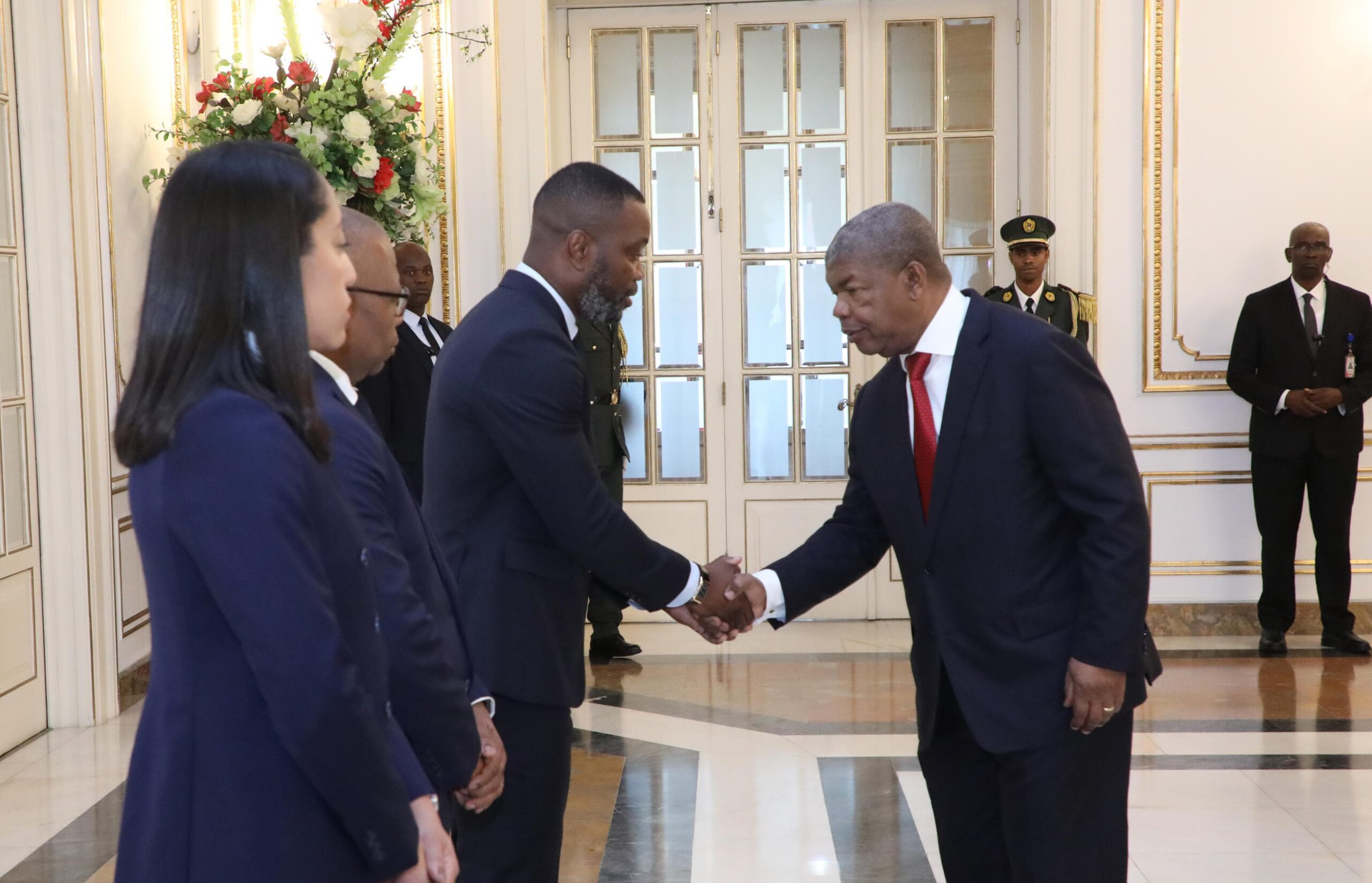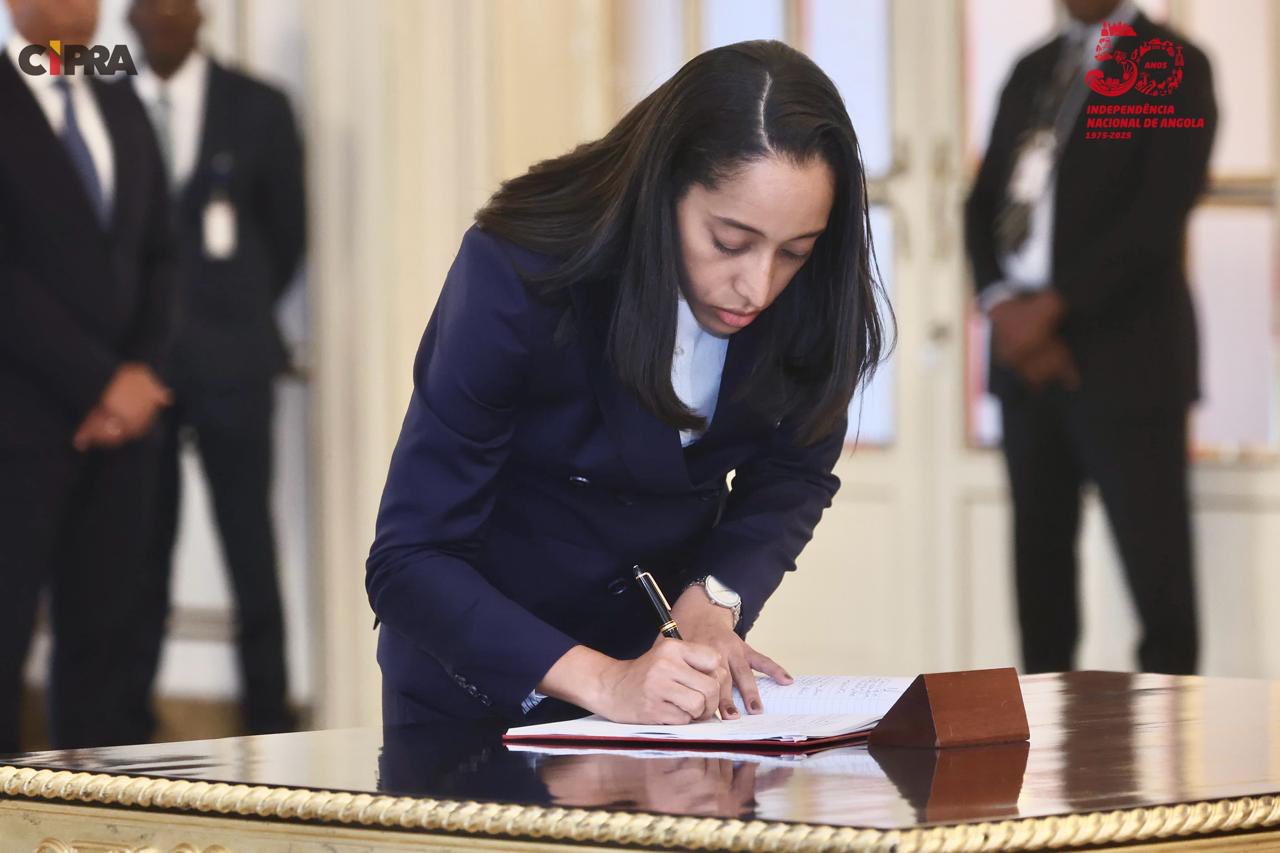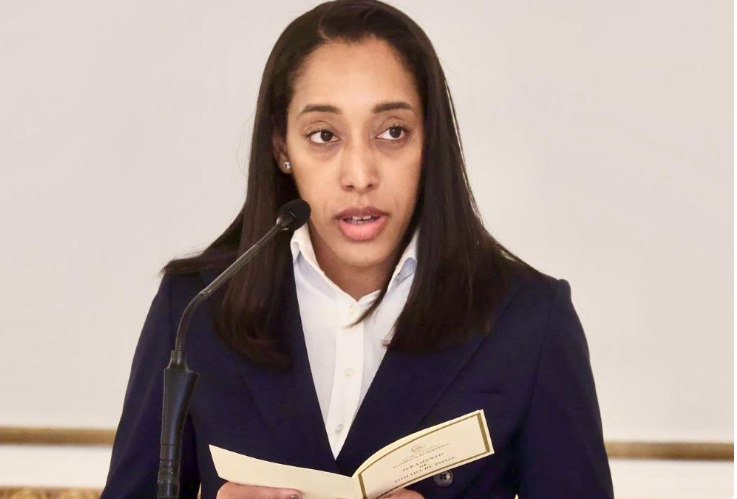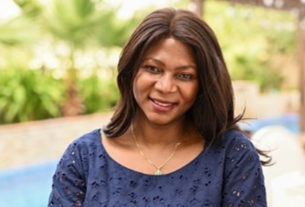A little over 30 years old, Tânia Paiva is making a remarkable entrance at the top of Angola’s intelligence apparatus. She has been appointed Deputy Director of the State Intelligence and Security Service (Serviço de Inteligência e Segurança de Estado-SINSE), in charge of integration and technological development. Her arrival marks a turning point, generating both enthusiasm and internal questions as she steps into a role full of strategic challenges.
On November 19, inside the Angolan presidential palace, Tânia Luciana Pompílio da Silva Santos Paiva broke through the tightly guarded codes of the intelligence sector. Appointed Deputy Director of SINSE with responsibility for technological integration and development, she was sworn in before President João Lourenço and took charge of one of the most strategic and sensitive portfolios within the state. It is a position where one does not usually expect to see a young woman from the digital field, yet her arrival feels like the signal of a long-awaited shift.
A former student of the French School of Luanda and a graduate in information technology, Tânia Paiva does not follow the traditional path of intelligence executives. She comes neither from the police nor the military, nor from the familiar circuits of the security establishment. Yet today she joins the elite of SINSE in a role no woman of her generation had ever held before. She becomes one of the youngest figures to reach the top of Angola’s intelligence structure, and she enters this strategic position with the reputation of a brilliant technician. Her rapid rise both fascinates and raises questions: admiration for her outstanding academic background coexists with doubts about her limited operational experience. Her appointment is already stirring a sector known for its rigidity and opacity, and the corridors of SINSE are buzzing with mixed reactions.
Tânia Paiva’s appointment fills the vacancy left by José Coimbra Baptista Júnior, who was named head of the Immigration and Foreigners Service. She now joins Jacinto Pedro Ricardo Figueiredo, in office since 2019, forming a duo tasked with steering the technological transformation of Angola’s intelligence services.

A Strategic Portfolio in a Tense Global Landscape
The position entrusted to Tânia Paiva is one of the most sensitive within Angola’s security apparatus. It is, in many ways, a laboratory for reinventing national intelligence. At a time when threats no longer emerge solely from the field but increasingly from screens, networks, and algorithms, technology has become the backbone of state security. Paiva will therefore have to oversee a deep transformation of SINSE’s technological infrastructure, ensuring both its modernization and its protection.
One of her main challenges will be strengthening cybersecurity in an environment where digital attacks are becoming more frequent and more sophisticated. She must also supervise the security of internal communications, a strategic issue for an institution whose credibility depends on its ability to protect sensitive information. Added to this is the need to overhaul surveillance systems and integrate more advanced data-analysis methods, including the use of artificial intelligence.
During the swearing-in ceremony, President João Lourenço highlighted the vigilance and rigor required for such a role. He stressed that technological modernization is no longer optional but an absolute necessity in safeguarding the state and combating new forms of threats.
A New Generation at the Gates of Power
Tânia Paiva’s appointment forms part of a broader renewal of the country’s leadership, illustrated by the simultaneous investiture of Gildo Matias José as governor of Lunda-Sul and Sandro Renato de Oliveira as Angola’s ambassador to Botswana. Yet it is Paiva who stands out the most, due to her atypical profile.
Young, tech-oriented, and innovative, she embodies the contradictions of a country undergoing profound change. Her critics point to her lack of field experience in a profession where intuition and accumulated expertise are considered irreplaceable. Her supporters, however, see her rise as a sign of openness,a sign that intelligence services may finally be welcoming profiles shaped by the digital and innovation sectors.

The Bet on a Modernized Intelligence Service
For Tânia Paiva, the challenge ahead is immense: she must convince an institution deeply rooted in tradition, update tools that are sometimes obsolete, and prepare SINSE for the threats of the coming decades. Her success will depend on her ability to rally seasoned teams around her while bringing a fresh vision unburdened by past reflexes, in a role where every decision weighs heavily on national security.
In a country where security matters remain sensitive and closely scrutinized, her appointment resembles an audacious bet: that Angola’s intelligence service is finally ready to project itself into the future by embracing technology, youth, and innovation. The task is monumental, but it places the young leader at the heart of a decisive transformation of the nation’s security apparatus.
Whether she will manage to turn this promise into reality remains to be seen. For now, the nation watches her first steps with keen attention, curious to observe how she will navigate one of Angola’s most strategic sectors at the intersection of networks, power, and geopolitical challenges.



